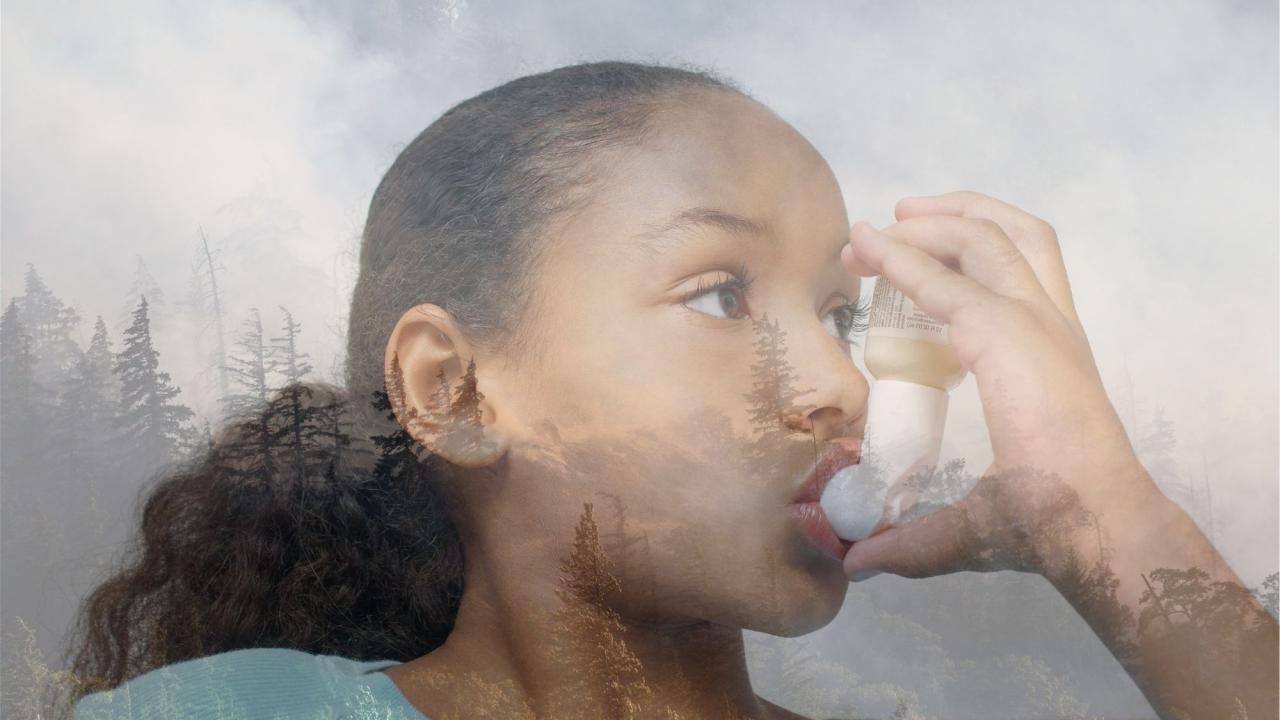
My Lungs Are Closing Up
California's wildfire season is becoming longer with more extreme fires due to climate change. This means more smoke being launched into the air causing detrimental effects to people's health, most notably, those who live in unhealthy, high-poverty neighborhoods. In a recent KALW broadcast, reporter Lee Romney spoke with an intelligent and impassioned mother-daughter pair about their experiences.
The daughter, Ta'Kira, was diagnosed with asthma at 5 years old and her mother, Shawntierra, has been treating it with inhalers and additional medicines prescribed by their doctor. However, obtaining the medications through Medi-Cal can be cumbersome with a lot of hitches. When fire season starts, even when they are many miles away, the particle matter from the smoke still reaches Ta'Kira's home and school, occasionally causing her to be sent home due to breathing trouble.
Dr. John Balmes is a professor of medicine and environmental health sciences who studies the impact of air pollution on kids. And he said... “based on what we know from outdoor air pollution and about asthma biology in general, the effects can be cumulative.”
While wildfires have taken a tole on both Ta'Kira's health and education, she is not alone. As a Black girl living in a low-income neighborhood, environmental justice is a key factor in her possible life struggles.
Black children are disproportionately affected by asthma, more likely to be hospitalized for it,and even to die from it. Especially in low-income neighborhoods like Census tract 2509, home to Vallejo’s most concentrated Black population. Those asthma trends are due in part to greater exposure to air pollution, from industry and freeway soot. But, Balmes said, also “discrimination, poor housing, poverty, crime,” and other “negative aspects of neighborhoods” such as garbage.
While families can listen to local health advice from air districts, and do things like stay inside and avoid exercise, that will not always work for people in low-income neighborhoods. Many times the difficulty lies in the housing - windows that don't create a proper seal, doors that have a gap at the base, air conditioners that don't provide proper filtration. Families like Shawntierra and Ta'Kira's find small solutions like air fresheners and indoor air filters, but many times it's not enough.
The wildfires that have become more destructive in recent years are not what Shawntierra and Ta'Kira have been used to. They, along with a gambit of others, are learning to connect the intensity of the wildfires with global climate change. Through continued research, society's reliance on fossil fuels has been proven the primary contributor to the collection of GHGs in our atmosphere. GHG's trapping heat in the atmosphere has led to longer, more devastating fire seasons in many parts of the world.
Read reporter Lee Romney's full story about Shawntierra and Ta'Kira on their experiences and the effects of climate change on families produced by KALW Public Radio: